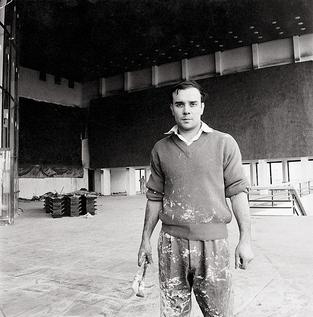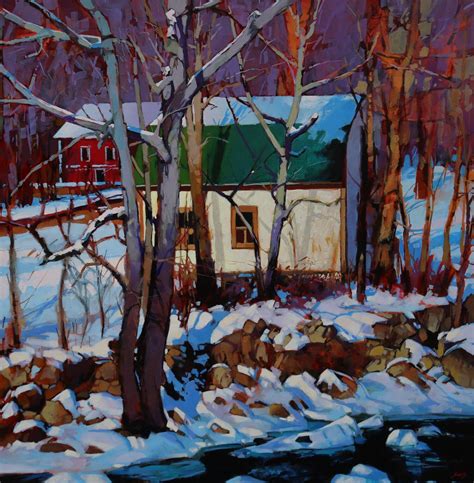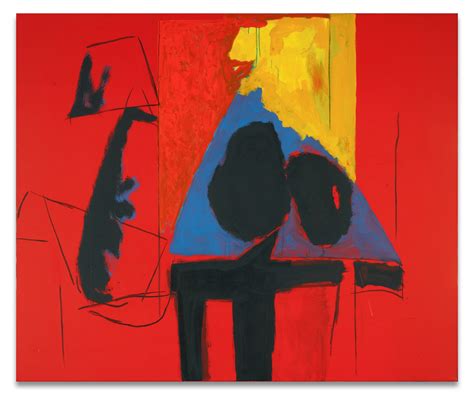A Quote by Andrew Graham-Dixon
The edge of a painting is its frontier... where the artist negotiates his boundaries with the real world... where art begins and ends and where the eye enters and leaves the image. It determines, in an infinitely subtle number of ways, how you read a painting - which, unlike a book or a piece of music, has no pre-determined beginning or end.
Related Quotes
I feel like what's most important for painting - which has been hierarchically on the top for a really long time in terms of what is considered fine art, by comparison with something like a comic book or what's considered low art - is that painting should open up laterally to include other cultures and things that don't immediately resonate as a painting but are obviously of equal contribution to the genre.
People want to know those details. They think it gives them greater insight into a piece of art, but when they approach a painting in such a manner, they are belittling both the artist’s work and their own ability to experience it. Each painting I do says everything I want to say on its subject and in terms of that painting, and not all the trivia in the world concerning my private life will give the viewer more insight into it than what hangs there before their eyes. Frankly, as far as I’m concerned, even titling a work is an unnecessary concession.
Why was the painting made? What ideas of the artist can we sense? Can the personality and sensitivity of the artist be felt when studying the work? What is the artist telling us about his or her feelings about the subject? What response do I get from the message of the artist? Do I know the artist better because of the painting?
I wanted to be a visual artist, but I realized I was more affected by what I read than by what I saw. I would go to a show at a museum and look at a painting and say, 'Oh I wish I owned that,' and that would be the end of my relationship with a painting. With a short story I would read or with an author I would discover I could be haunted. It would affect my mood and affect the way that I saw the world. I thought, wow, it would be amazing to be able to do that.







































